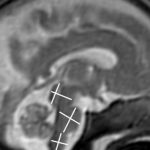Russia is running out of weapons for its war in Ukraine and the costs to the Kremlin are “staggering” in terms of soldiers killed and equipment lost, a UK spy chief will say.
Sir Jeremy Fleming, the head of GCHQ, will use a rare, public speech on Tuesday to say the Ukrainian armed forces are “turning the tide” on the physical battlefield as well as in cyberspace.
The top intelligence officer will also talk about China – the main focus of his comments.
He will say Beijing is seeking to exploit technologies in space and online in ways that could pose a “huge threat to us all”.
Sir Jeremy will flag concerns about the potential for the Chinese government to target the satellites of opponents at a time of conflict, crippling a crucial domain relied upon by militaries to launch weapons and communicate. It is feared the technology could also be used to track people.
He will also say the Chinese Communist Party is “learning the lessons” from Russia’s war in Ukraine, which has seen the UK and its allies hit the Russian economy with sanctions.
Sir Jeremy will describe how Beijing could use digital currencies to track people’s transactions and also help to protect its economy from the sort of sanctions being applied to Vladimir Putin‘s regime.
China thanks Elon Musk for Taiwan tweet – but Taipei insists ‘our freedom is not for sale’
War with China ‘absolutely not an option’, says Taiwan president
UK ‘dragging its heels’ over trade links to forced labour in China – as one survivor prepares to sue trade secretary
Western allies are watching China closely amid concerns President Xi Jinping might be considering an invasion of the island of Taiwan, using the lessons drawn from Russia’s attack on Ukraine to bolster its defences against any western response.
In a speech at the Royal United Services Institute (RUSI) in London, the director of GCHQ will touch on the war in Ukraine.
He will call decision-making by Russian President Vladimir Putin “flawed” following a failure to seize Kyiv in the first days of the war and a failure to make the gains he had wanted to achieve in the east.
“It’s a high stakes strategy that is leading to strategic errors in judgement,” Sir Jeremy will say, according to exerts of the speech released on Monday night.
“Their gains are being reversed. The costs to Russia – in people and equipment are staggering. We know – and Russian commanders on the ground know – that their supplies and munitions are running out.
“Russia’s forces are exhausted. The use of prisoners to reinforce, and now the mobilisation of tens of thousands of inexperienced conscripts, speaks of a desperate situation.
Please use Chrome browser for a more accessible video player
Read more:
War with China ‘absolutely not an option’, says Taiwan’s leader
US ‘would defend Taiwan’ in face of Chinese invasion, Biden says
The main thrust of the speech will be about China and the critical importance of western allies staying in the race for technological advantage.
The head of GCHQ will highlight a paradox that Beijing’s “great strength combined with fear is driving China into actions that could represent a huge threat to us all”.
Talking about the huge importance and impact on daily life of emerging technologies, Sir Jeremy will refer to a “sliding door moment” in history, using the rather unusual analogy of the 1998 romantic comedy starring Gwyneth Paltrow in which a seemingly inconsequential event – catching a train before the door slides shut or missing it – has huge implications.
The spy chief will underline the need of ensuring western allies have technological solutions that do not rely on China given the divergence in values between democratic and authoritarian regimes.
“At GCHQ it is our privilege and duty to see the sliding door moments of history,” he will say.
“This feels like one of those moments. Our future strategic technology advantage rests on what we as a community do next. I’m confident that together we can tilt that in our collective favour.”
Highlighting the dangers of not acting, he will accuse the Chinese government of using its financial and scientific clout to manipulate key technologies such as satellite systems and digital currencies to expand its sphere of influence and tighten its grip on power at home.
He will talk specifically about the BeiDou satellite system which the authorities have forces Chinese citizens and businesses to adopt as well as exporting it around the world.
Sir Jeremy will say: “Many believe that China is building a powerful anti-satellite capability, with a doctrine of denying other nations access to space in the event of a conflict. And there are fears the technology could be used to track individuals.”
He will also talk about central bank digital currencies that allow China to monitor the transactions of users.
In addition, the GCHQ boss will say how a centralised digital currency could “enable China to partially evade the sort of international sanctions currently being applied to Putin’s regime in Russia”.






















